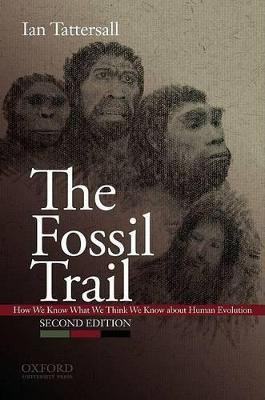The Fossil Trail(English, Paperback, Tattersall Ian)
Quick Overview
Product Price Comparison
Ideal for courses in Human Evolution, History of Paleoanthropology, and as a supplement for Introduction to Biological Anthropology, The Fossil Trail is a history of paleoanthropological thought and discovery. Ian Tattersall's account of the study of human evolution offers a colorful history of fossil discoveries and a revealing insider's look at how these finds have been interpreted-and misinterpreted-through time. The second edition of The Fossil Trail brings the text up-to-date with a look at what has happened in paleoanthropology in the thirteen intervening years since the first edition's publication. There has been not only a dramatic increase in the size and scope of the human fossil record, but the introduction of new techniques of analysis and of ways of interpreting that record. Through it all, Tattersall discusses the great researchers and discoveries within the context of their social and scientific milieu to reveal the many forces that shape how we interpret fossil findings, and to give a picture of what lies ahead for the field. The Second Edition updates the original first fifteen chapters with the most recent research.The new edition also features a substantially revised Chapter 16, which provides a bridge to later developments about the Neanderthals and their precursors.Tattersall has also added two new chapters that cover the discoveries published over the past thirteen years. Chapter 17 launches a discussion of the state of paleoanthropology at the turn of the 21st Century, and Chapter 18 ties our most recent knowledge back to the beginning to look at where we've been and where we're headed. The author has also added a new gallery of maps of fossil sites-including Western Europe, Central Europe, The Caucuses and Near East, East Asia, Northern Africa, and Southern Africa-and updated the opening timeline to include the discovery of nearly 20 new species.


